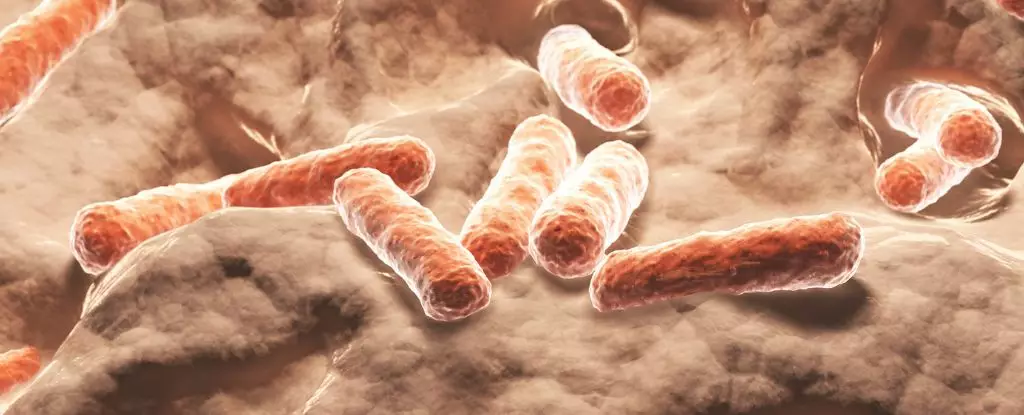Recent research has unveiled a potential breakthrough in managing blood sugar levels through natural means, drawing critical attention to the gut microbiota’s role. Traditionally, blood sugar regulation has been primarily addressed via pharmaceutical interventions, such as the widely used drug Ozempic, which operates by mimicking the hormone glucagon-like peptide-1 (GLP-1). In contrast to these synthetic approaches, scientists are turning to the gut, revealing how specific microbes can influence our sugar cravings and blood sugar control. This shift signifies a notable advancement in understanding glucose metabolism and opens the door for innovative dietary and microbiome-related strategies in treating conditions like type 2 diabetes.
At the forefront of this research is a team from Jiangnan University in China, who discovered that the presence of a single gut microbe, specifically Bacteroides vulgatus, plays a crucial role in regulating the secretion of GLP-1. This hormone is vital for both controlling blood sugar levels and managing appetite. By increasing the abundance of B. vulgatus in diabetic mice, the researchers were able to boost GLP-1 levels, demonstrating that manipulating gut flora could serve as a powerful tool in combating diabetes. This new perspective offers an alternative to conventional treatments, suggesting a more holistic approach that leverages the body’s natural resources.
The interaction between gut microbes and genetic factors is complex and multifaceted. One significant finding from the study highlights the importance of a protein known as Ffar4, which was shown to modulate the colonies of B. vulgatus in the gut. Mice lacking this protein exhibited a reduced presence of the microbe and a decrease in the hormone FGF21, which is closely linked to sugar cravings. Interestingly, previous studies established a correlation between genetic variants affecting FGF21 and a higher likelihood of preferring sweet foods among humans. This reinforces the idea that our dietary preferences are influenced not only by gut bacteria but also by our genetic makeup, which may contribute significantly to health outcomes such as obesity and diabetes.
FGF21 has emerged as a critical player in understanding dietary preferences and metabolic health. Research indicates that this hormone is not only involved in hunger signaling but also has implications for enhancing insulin sensitivity. In the context of diabetes, impaired FGF21 signaling can exacerbate sugar cravings and, subsequently, blood sugar management difficulties. The link between the gut microbiome, FGF21 levels, and sugar preference illustrates the potential for creating targeted interventions that could lead to healthier eating habits. Therefore, supplementing gut microbes or their metabolites could pave the way for natural enhancements in FGF21 production.
The promising findings from the Jiangnan University research call for further investigation into potential therapeutic strategies that harness gut microbiota. By developing dietary or probiotic interventions to increase beneficial microbes like B. vulgatus, we may be able to fine-tune our metabolic processes, thereby reducing sugar cravings and improving blood sugar regulation naturally. This approach not only addresses the symptoms of diabetes but also ataques the underlying mechanisms through which these symptoms manifest, creating a more effective treatment paradigm.
The growing body of evidence points to the significant role of gut microbes in regulating blood sugar levels and shaping dietary preferences. The relationship between Bacteroides vulgatus, GLP-1, and FGF21 presents a compelling case for a fundamental shift in diabetes management from solely pharmaceutical solutions to integrating gut health and microbiome diversity. As research continues to unfold, there is an exciting opportunity to develop innovative and natural methods for enhancing metabolic health, which could ultimately transform the landscape of diabetes treatment and prevention.


Leave a Reply